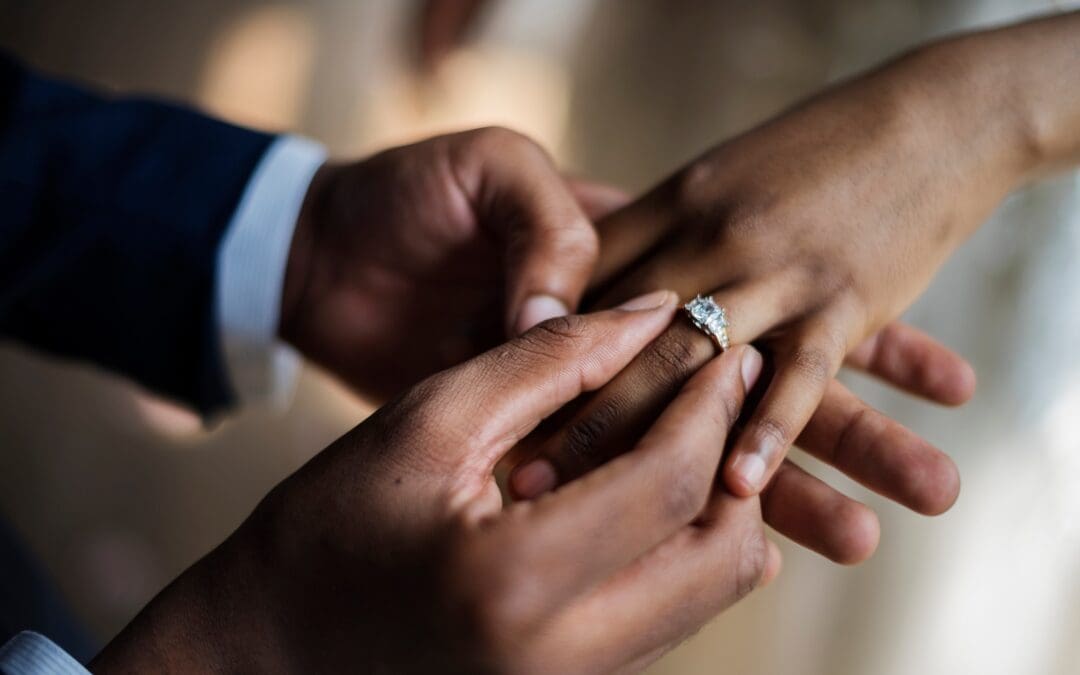This is the fifth post in a six-part series studying the effects of America’s “hookup” culture on women, men, and their relationships with one another. Read the previous post here.
___________________________
How can the hookup trend be reversed among young adults? The importance and sanctity of marriage should be re-emphasized in local communities.
Within the context of marriage, two individuals are put together in such close proximity that they cannot help but get to know one another in a deeply personal way. A wife can no longer pretend to be someone she is not. Therefore, a husband and wife get to know each other’s true selves, beyond any masks they have adopted up until their marriage.[1] One millennial, when interviewed about Tinder, explained, “Sex should stem from emotional intimacy, and it’s the opposite with us right now.”[2]
Marriage can begin to reverse this trend by building sex on top of emotional intimacy, instead of the other way around. Marriage also fosters intimacy by giving the opportunity for both individuals to feel protected and safe based on the commitment they made to one another. This feeling of safety makes them more comfortable opening up to one another and being vulnerable with one another, and they consequently get to know each other on a deeper level.
Flora’s relationship with Andy in Berry’s book Remembering is a good example of emotional and physical intimacy as fostered by the commitment of marriage. Andy could go after any of the girls he mentions in his narrative, pursuing them for their external appearances without getting to know their stories, but instead he remains faithful to his wife, with whom he has not only an emotional connection, but a commitment. In a way, that commitment allows him to foster the emotional connection–they stay together through difficult times and easy times and get to know each other through all of it.
Andy knows the real Flora, and Flora knows the real Andy. Their connection is not superficial. They have connected beyond external factors. Hookup culture, which bypasses commitment, does not allow individuals to get to know each other at this level, and consequently leaves participants feeling empty and unknown.
The community must understand the value and importance of marriage and members of the community must hold each other accountable for marriage to effectively hold two people together so that they are not afraid to be completely vulnerable. Marriage is the tool by which the community enforces healthy sexuality.[3] For example, if a man abandons his wife, community members can step in and remind him of the commitment that he made to her.
When the community is regulating sexuality in a healthy way, marriage and healthy families flourish. “These arrangements exist, in part, to reduce the volatility and the danger of sex-“”to preserve its energy, its beauty, and its pleasure; to preserve and clarify its power to join not just husband and wife to one another but parents to children, families to the community, the community to nature.”[4]
Good parenting is another possible solution to hookup culture. By bringing up their own children in a proper understanding of hookup culture, past participants in hookup culture can work to reverse the hookup culture trend.
The result of hookup culture will likely be a new generation of broken, hurting people who do not, or cannot, admit that they are hurting. However, those broken, hurting people can work to make sure that their children do not go through the same agony that went through. They must confront their decisions honestly, process them accurately, and heal their wounds intentionally so that they do not pass those trends on to the next generation. They can teach their children that hookup culture is not the embodiment of sexual freedom and liberation that they thought it was, and that in actuality it is far more emotionally damaging than they previously thought. They might encourage their children towards a healthier understanding of relationships, emphasizing commitment, empathy, and a desire to get to know the person they are with deeply.
They must be self-aware enough to seek out the resources they need to process what happened, how they felt about it, and what they can do about it going forward. Otherwise, their pain will affect their children, perhaps to the extent that their children go through what they went through.
___________________________
Check back next week for the next installment in this special blog series.
[1] Though marriage provides the opportunity for two individuals to get to know each other very well, and even forces them to do so, it is still possible to pretend within a marriage. Therefore, this does not apply to every single marriage, though I would argue that hiding one’s true self from one’s husband takes significantly more work than hiding one’s true self from one’s boyfriend or hookup.
[2] Sales.
[3] Berry, 138.
[4] Berry, 120-121.

